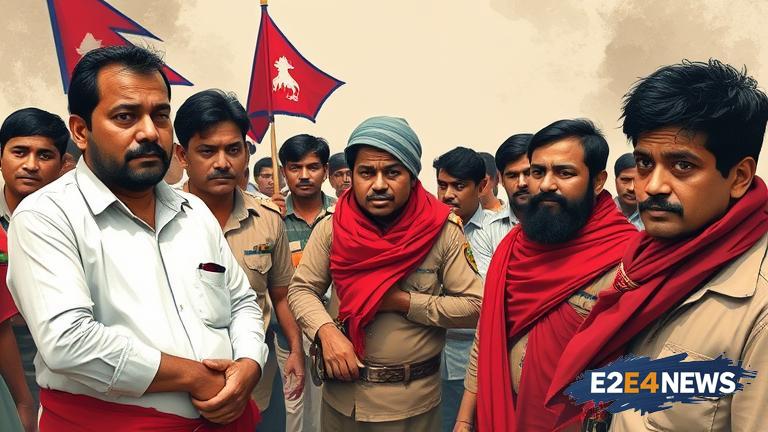A temporary truce has been reached in Nepal’s Maoist Centre, a major political party in the country, after weeks of intense power struggle. The truce was reached after a series of meetings between the rival factions, led by Chairman Pushpa Kamal Dahal and senior leader Madhav Kumar Nepal. The agreement has brought a sense of relief among party members and supporters, who were worried about the potential split of the party. The power struggle began after Chairman Dahal announced his decision to resign from the party leadership, citing health reasons. However, his move was seen as a ploy to consolidate power and pave the way for his loyalists to take over the party. Senior leader Nepal and his supporters opposed the move, leading to a bitter struggle for control of the party. The truce has been welcomed by party members and supporters, who hope that it will pave the way for a more stable and united party. However, analysts say that the truce is temporary and that the underlying issues that led to the power struggle remain unresolved. The Maoist Centre has been a major player in Nepalese politics, and its stability is crucial for the country’s political landscape. The party has been instrumental in shaping the country’s constitution and has played a key role in the country’s transition to a federal republic. The power struggle within the party has been seen as a reflection of the deeper divisions within the country’s political elite. The truce has been seen as a positive development, but it remains to be seen whether it will hold and whether the party will be able to overcome its internal differences. The Maoist Centre has a long history of internal conflicts, and the current power struggle is just the latest episode in a long series of struggles for control of the party. The party’s leadership has been criticized for its handling of the crisis, with some accusing Chairman Dahal of trying to consolidate power and undermine the party’s democratic institutions. The truce has been reached after intense pressure from party members and supporters, who were worried about the potential consequences of a split. The agreement includes a number of concessions, including the formation of a committee to investigate the issues that led to the power struggle and the establishment of a new leadership structure. The truce has been welcomed by other political parties, who hope that it will pave the way for a more stable and united political landscape. However, some analysts say that the truce is just a temporary fix and that the underlying issues that led to the power struggle remain unresolved. The Maoist Centre’s stability is crucial for the country’s political landscape, and the party’s ability to overcome its internal differences will be closely watched in the coming months. The truce has been seen as a positive development, but it remains to be seen whether it will hold and whether the party will be able to overcome its internal differences. The party’s leadership will face a number of challenges in the coming months, including the need to rebuild trust and unity among party members and supporters. The truce has been reached after a series of intense negotiations, and it remains to be seen whether it will pave the way for a more stable and united party. The Maoist Centre’s stability is crucial for the country’s political landscape, and the party’s ability to overcome its internal differences will be closely watched in the coming months.





